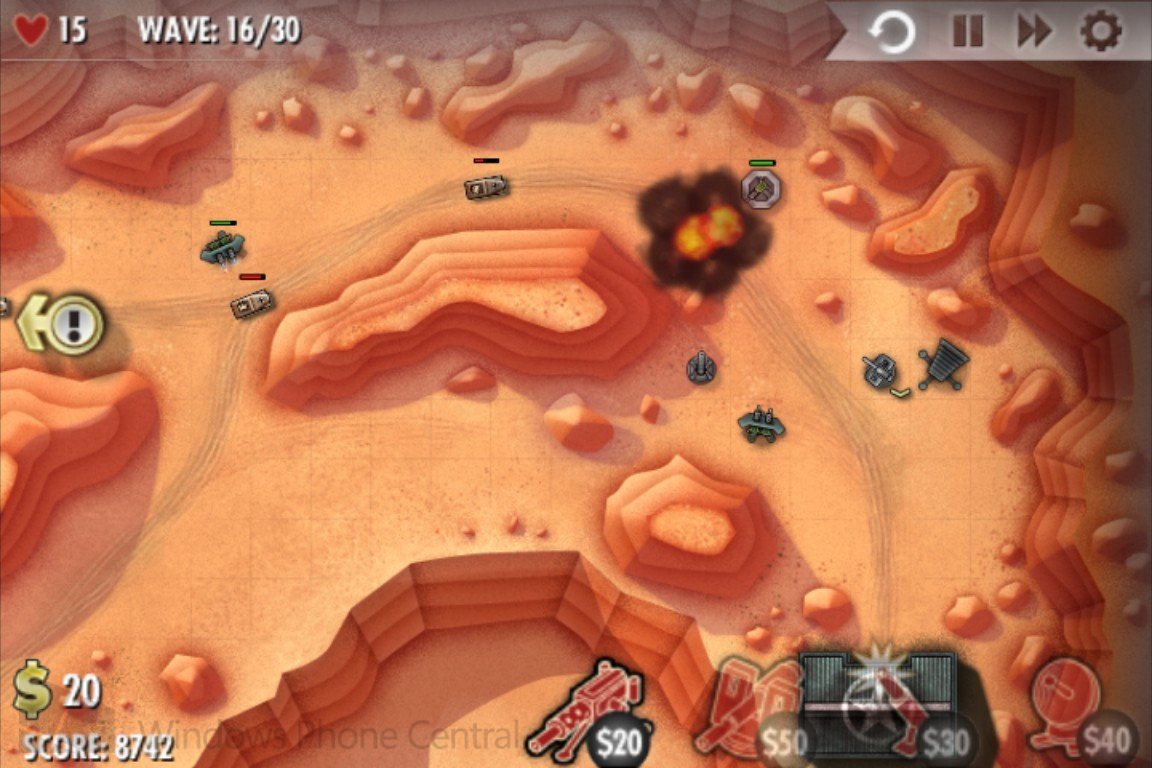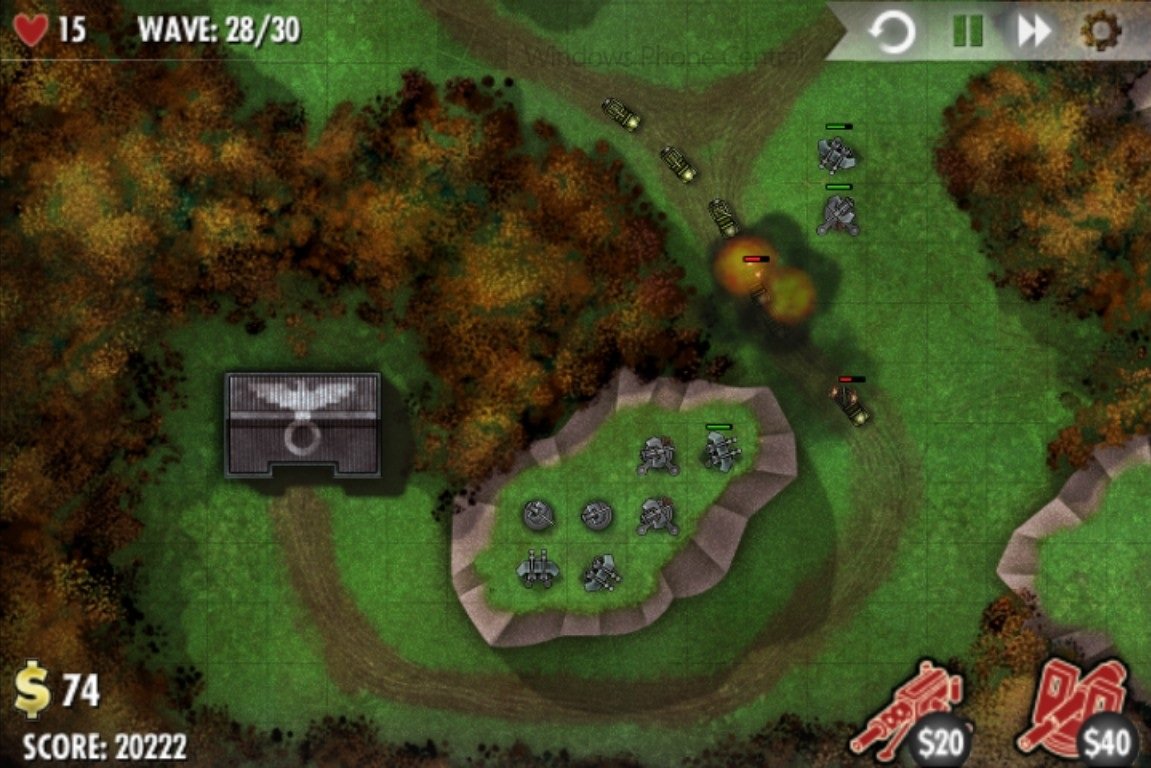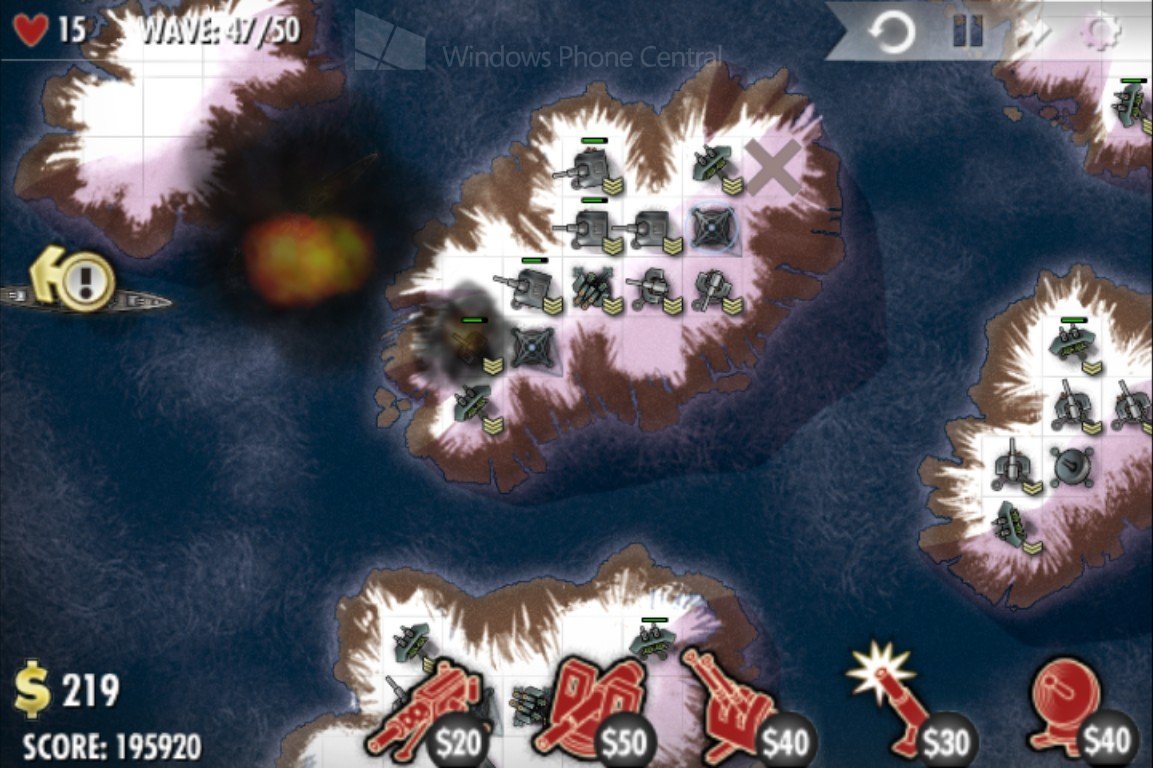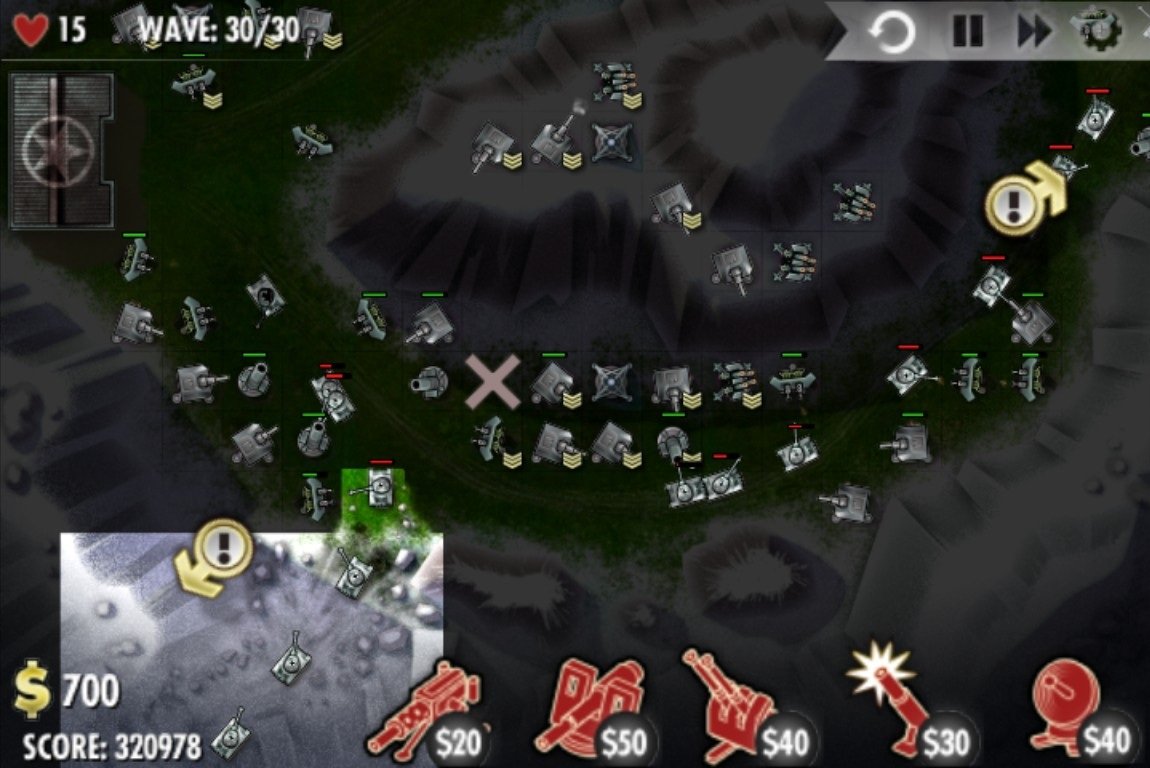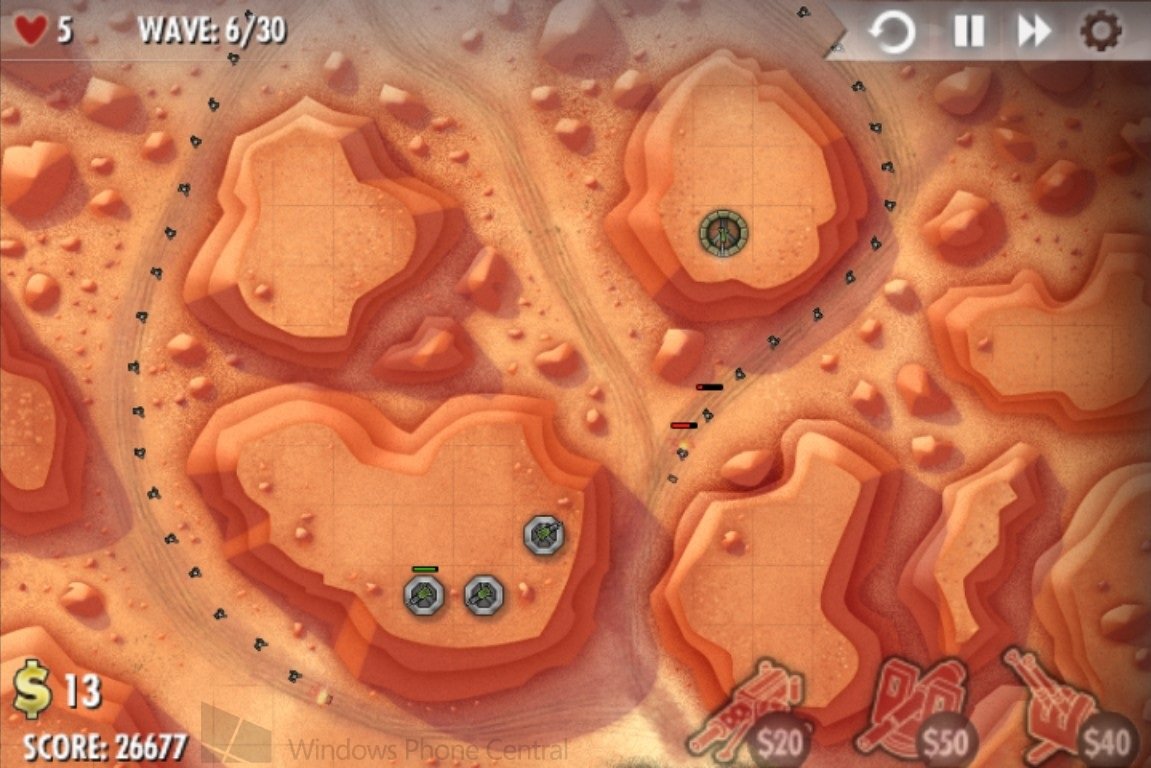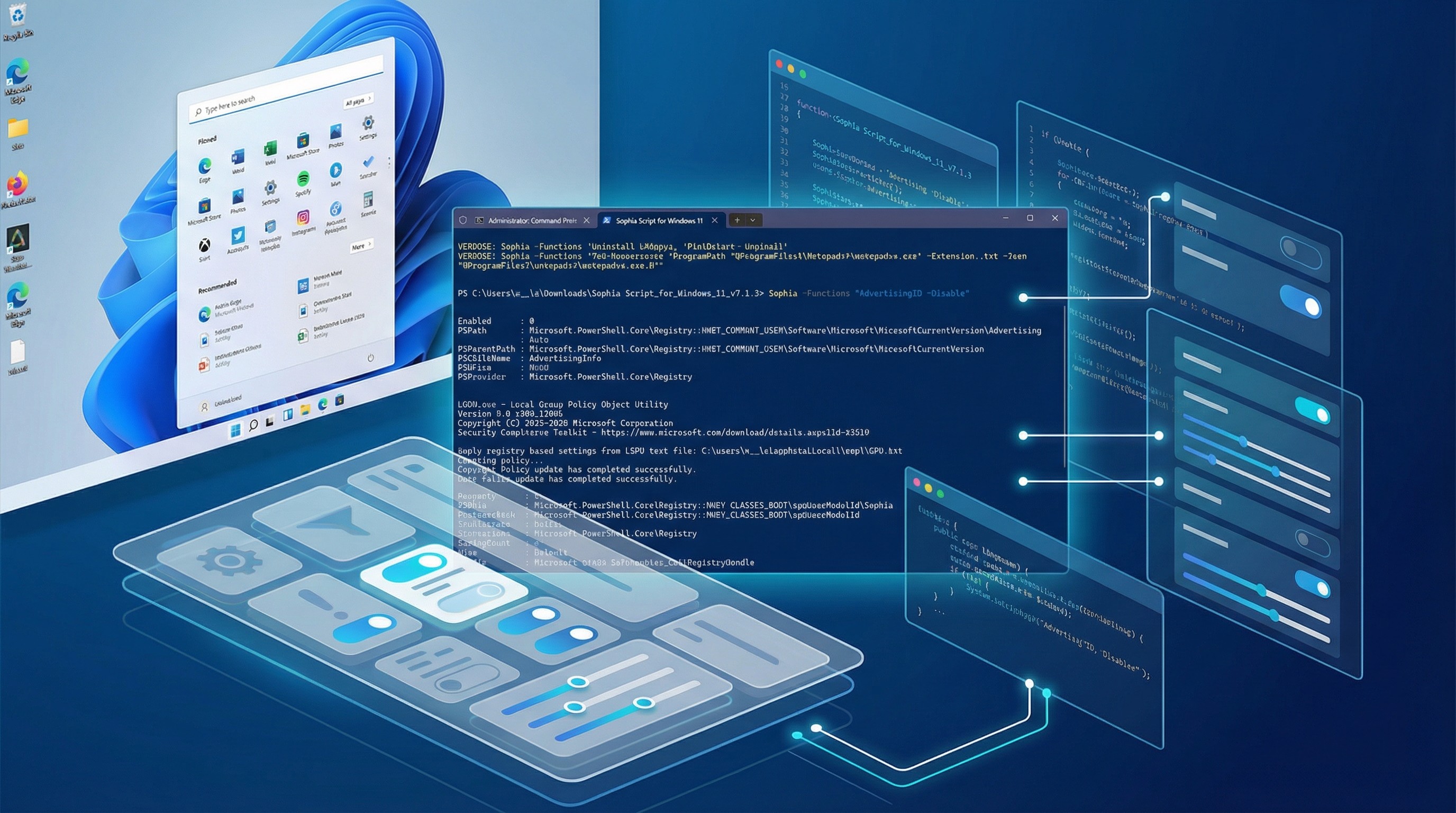iBomber Defense Review: WWII strategy made simple
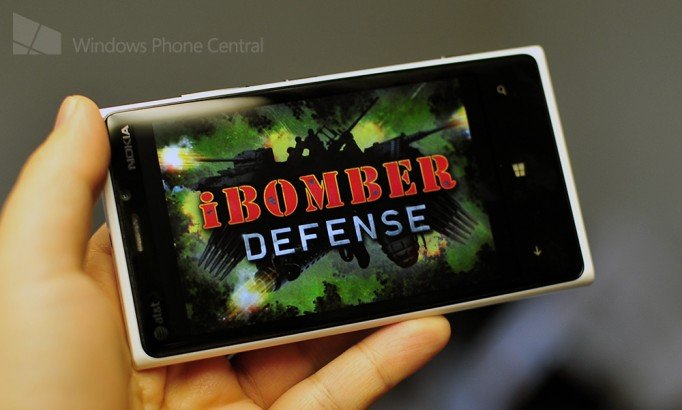
All the latest news, reviews, and guides for Windows and Xbox diehards.
You are now subscribed
Your newsletter sign-up was successful
Slowly but surely, Nokia and Electronic Arts continue to pump out Nokia-exclusive Xbox Windows Phone games. These titles also include games from Chillingo, a popular mobile publisher owned by EA. The latest Chillingo-published exclusive iBomber Defense comes from Scottish developer Cobra.
Originally an iOS game, Cobra’s tower defense title has since branched out to other platforms like Steam and Windows Phone. Fans of the genre should be thankful for that, because other than some performance issues and rough Achievements, iBomber Defense is the best traditional tower defense game in the Xbox lineup.
Battle of the Bulge
The previous traditional tower defense game geoDefense took place in a sci-fi setting, whereas iBomber hews much closer to reality. It’s actually set during World War II, though you could be forgiven for not realizing that after reading the game’s Store description. The game lacks any sort of story sequences, but missions take place across historic European and Russian settings. Even if you think WWII has been done to death in games, the touches are subtle enough not to annoy.
Two sides of a coin
iBomber is divided up into two sections: Campaign and Quick Play. The former actually offers two separate campaigns: one for the dashing Allies and the other for the naughty Axis. Each one consists of 14 missions and will take several hours to complete (especially if you’re going after Perfect ratings). You can play them in whatever order you like.
It’s cool that the game lets players take on either side of the conflict, though the lack of story means the potential doesn’t really get capitalized on. Also, the campaigns are completely linear and missions can’t be revisited after moving to the next mission, though you can pause and replay or choose to replay right at the end of a mission.
Quick Play allows players to revisit stages they’ve unlocked in the Campaign. However, it limits access upgrades and changes the enemy wave patterns. That’s good in that it makes for a more varied experience, but the limited upgrades make stages harder than they should be.
Gameplay
Maps come in two varieties: land and sea-based. On the land maps, you have a specific base that must be defended. The goal in sea levels is to prevent enemy ships from moving off-screen. Either way, enemies approach along specific routes. Towers can only be built in certain spaces, and putting them on higher ground increases their range.
All the latest news, reviews, and guides for Windows and Xbox diehards.
The maps are too large to fit everything on screen at once; some panning is required. The default view is zoomed in much too close. Pinching zooms out. Frankly, the zoomed out view is the only useful distance and should be the default.
A control panel at the top-right corner of the screen has four options: Rewind, Pause, Fast-Forward, and Settings. Rewind allows you to restart the current wave, but sadly it can only be used once every three waves. Fast-forward works the same as in Flight Control, speeding up the game. The buttons are too tiny, even on the Lumia 920’s 4.5 inch screen, so you’re bound to press the wrong one occasionally.
Towers and upgrades
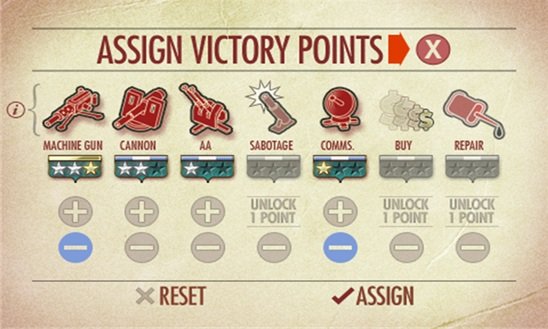
Each side has access to some of the same towers and one unique one. The same tower looks slightly different depending on which side uses it, adding just a hint of variety. Initially, you’ll only have access to three towers, but by spending upgrade points you’ll unlock more. Unlike geoDefense’s laser, there is no weapon that fires in a straight line. All towers can be upgraded up to three times mid-mission, provided you’ve unlocked the upgrades. Towers can be built and upgraded while paused.
- Machine Gun: The standard low-cost, rapid-fire weapon. You’ll usually want to build several of these before you earn enough money for more expensive armaments.
- Cannon: Fires slow but powerful shots that do splash damage.
- AA: The anti-aircraft gun is the only tower that can attack planes, but useless against ground units. Thankfully the game displays a notification four waves before aerial enemies start appearing in a level, so you needn’t build them too early.
- Sabotage/Firestorm: Fires individual shots that slow enemy units.
- Comms: The Allies’ unique tower boosts the range of nearby towers.
- X-Weapon: The Axis’ special tower resembles a cannon with impressive range. But the more towers that surround it, the stronger it gets (up to three levels).
Upgrade points can also be spent on Buy and Repair stats. The former causes you to start a map with more money and gain more from selling turrets. Repair reduces repair costs and makes turrets take less damage.
Technical difficulties
This weird visual bug made things tough, but it only happened once.
iBomber Defense may be polished on other platforms, but the Windows Phone port suffers from a few dings. First, while running on WP8, the game often crashes when returning to the map screen after a level. It acts like it’s loading for several seconds and then just dies. If this affected save data in anyway it would ruin the game, but thankfully that doesn’t happen. Eventually I learned to just relaunch the game whenever I wanted to exit from a map mid-game since I knew it would just crash.
While the crashes are probably a WP8-specific issue, the same can’t be said for the game’s erratic frame rate. During the later waves of any map, the frame rate takes a dive. If you put the game in Fast Forward, it gets unbearably skippy. That makes it tough to upgrade towers or even just exit Fast Forward. I could overlook the stuttering if it only happened on WP7. But the Lumia 920 is much beefier than any WP7 handset and it still happens, so clearly the game has coding problems.
Achievements
Besides the technical problems, iBomber’s Achievements are its only other major flaw. Campaign has only two Achievements: one for beating each side’s campaign on any difficulty. The other 18 are tied to Quick Play, so you’ll have to play through each map a minimum of two times. Oddly, all of the Achievements are tied to finishing Campaign and Quickplay, so it will take hours to unlock even one. The Steam version is the same way, but it’s still a poorly conceived Achievement distribution.
To get the Quick Play Achievements, you’ll basically need to beat each level on the Veteran difficulty perfectly and without losing any turrets. That wouldn’t be so bad, but the fourth level (pictured) is nearly impossible on Veteran. I’ve spent more than three hours replaying it different ways, and the enemies always make it through my defenses between waves 20 and 30. If the subsequent levels are equally tough, Quick Play will be an entirely frustrating experience.
Overall Impression
Alright, so iBomber Defense doesn’t run as well as it should and the Achievements are crazy hard and slow to come by. It’s still my favorite traditional tower defense game (in the Xbox WP lineup) though. The graphics and setting are less flashy than geoDefense, but much more visually interesting. Continuing the comparison, turrets in this game always cost the same amount and have the same stats, unlike geoDefense’s crazy variable stats. iBomber provides a smoother and more cohesive experience.
Hopefully the developer does the right thing and patches iBomber Defense to work better on WP8. At minimum the crashes need to go, but an improved frame rate would be terrific. I’d also like to see the Quick Play difficulty brought down a few notches from impossible, but that might be wishful thinking if it’s just as hard on other platforms.
- iBomber Defense - Windows Phone 7 and 8 - 71 MB - $2.99 - Store Link


Paul Acevedo was formerly a Games Editor at Windows Central. A lifelong gamer, he has written about videogames for over 15 years and reviewed over 350 games for our site. Follow him on Twitter @PaulRAcevedo. Don’t hate. Appreciate!
